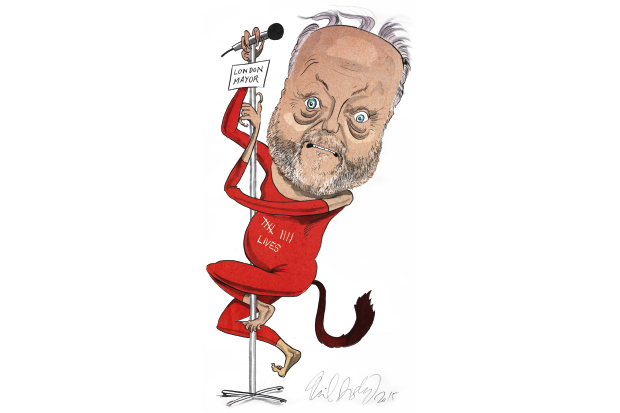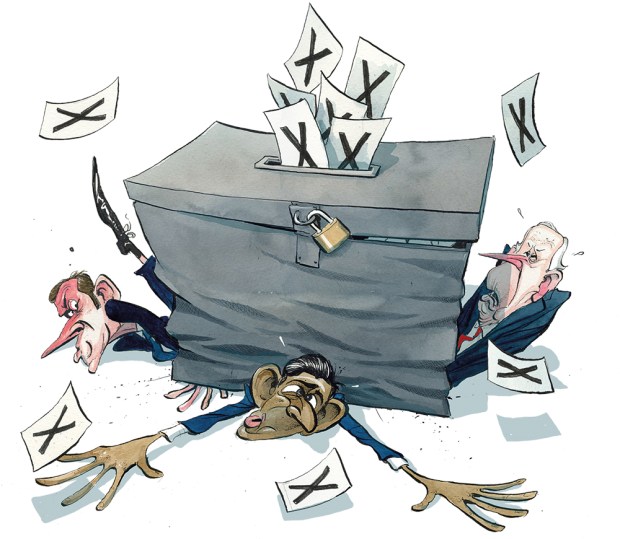The race to be London Mayor is the biggest personality contest in politics. And one personality looms largest: George Galloway, back from Bradford and seeking his fortune on the capital’s streets.
In his public appearances, the Respect party leader has been on his usual bombastic form. But dig a little deeper, and it becomes apparent that his campaign — and his career — is on the shakiest ground.
Already a subscriber? Log in
Subscribe for just $2 a week
Try a month of The Spectator Australia absolutely free and without commitment. Not only that but – if you choose to continue – you’ll pay just $2 a week for your first year.
- Unlimited access to spectator.com.au and app
- The weekly edition on the Spectator Australia app
- Spectator podcasts and newsletters
- Full access to spectator.co.uk
Or
Unlock this article
You might disagree with half of it, but you’ll enjoy reading all of it. Try your first month for free, then just $2 a week for the remainder of your first year.













Comments
Don't miss out
Join the conversation with other Spectator Australia readers. Subscribe to leave a comment.
SUBSCRIBEAlready a subscriber? Log in